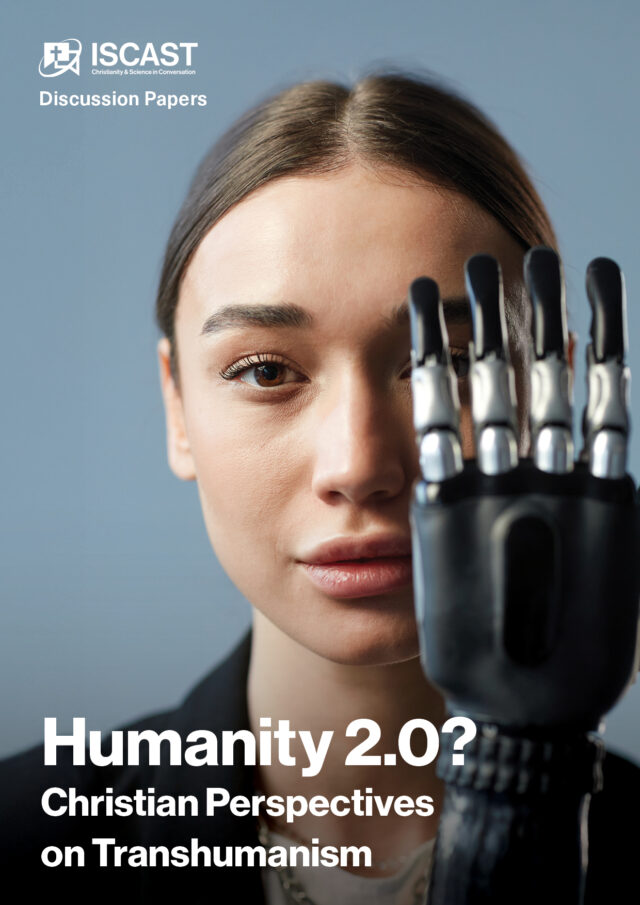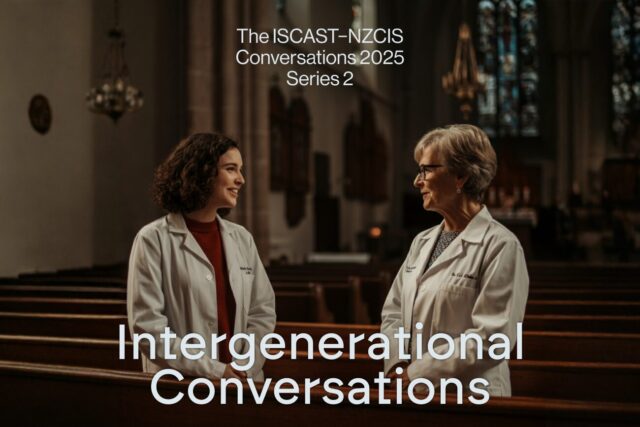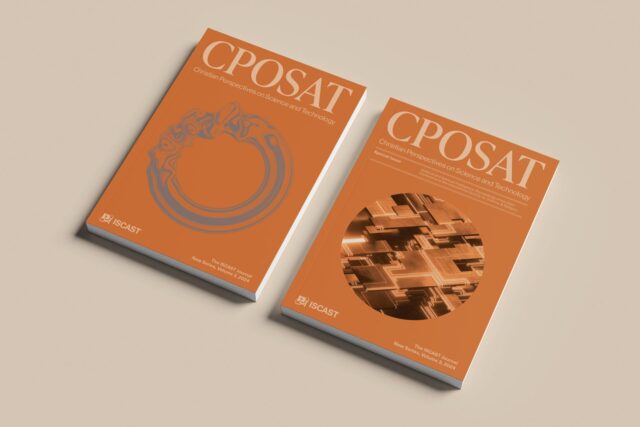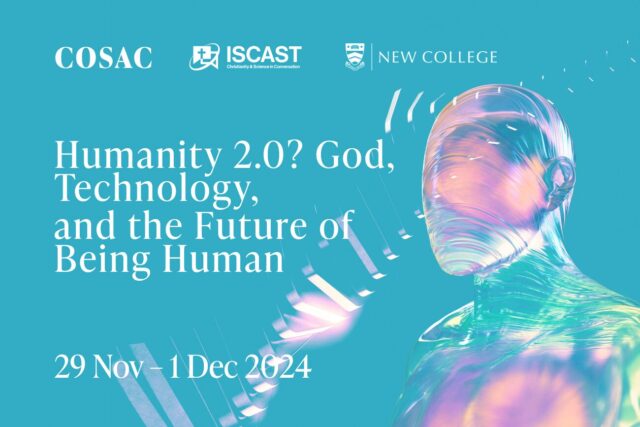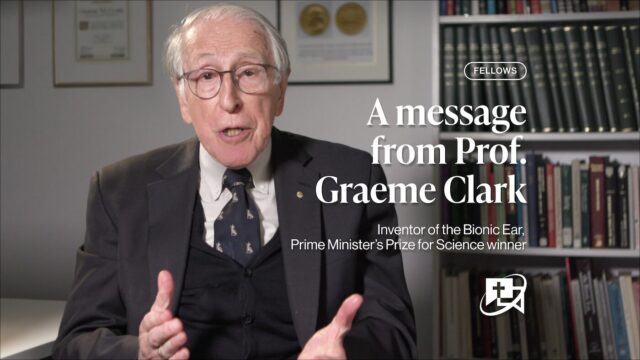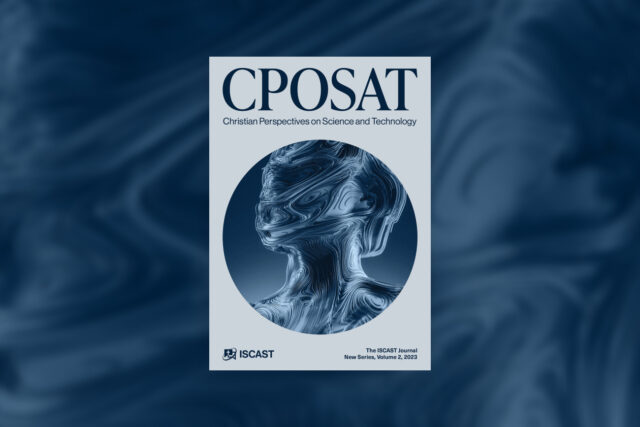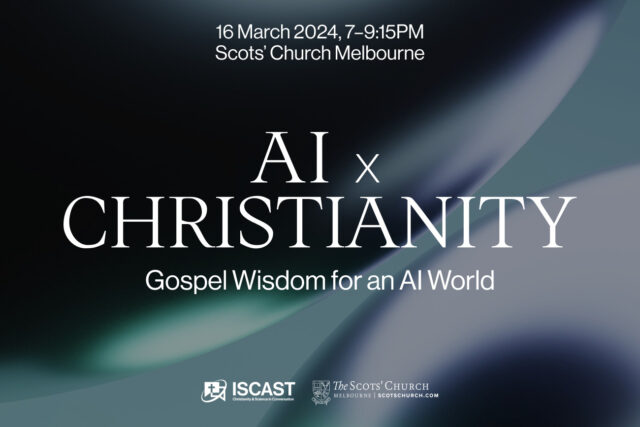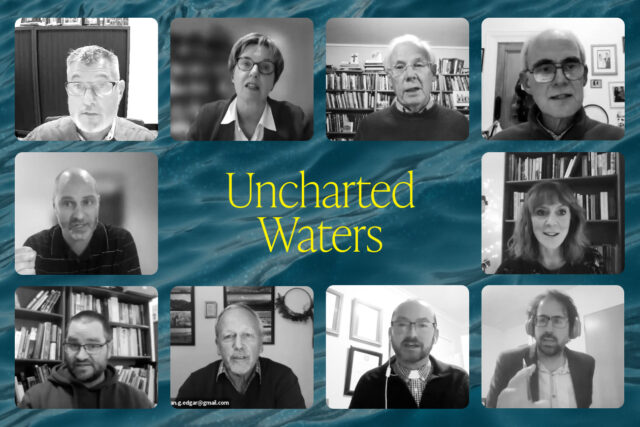


“Foster’s voluntarism hypothesis” is the term often used to name a widely used argument that Foster developed in three papers in the 1930s on the relationship between theology and the development of modern science. It is a complex argument that is not always coherent nor necessarily internally consistent. Nevertheless, this theory is often cited to purportedly explain the influence of Christian theology on the development of modern science. It has often been used as an interpretive tool in relation to Isaac Newton’s understanding of science and the development of science.
This paper re-examines Foster’s thesis in the light of Newton’s alchemical and theological writings, showing that Newton directly contradicts Foster at three main points. That is, first, Newton considered nature ensouled or spiritual. Second, Newton did not accept that a dominant divine will would lead to arbitrariness in nature and the negation of the laws of nature. Third, against Foster, Newton understood that God operates in the place of the animating soul of all nature. This paper concludes that, as a theory, voluntarism is Procrustean rather than predictive and should be retired from consideration.
Rev. Dr Robert Brennan PhD, MAppSci, BA (hons), BTh, BSc is the Training Manager and teaches theology at the Indigenous Wontulp-Bi-Buya College. He is also an ordained Uniting Church minister with a background in industrial physics and theology. His first book is entitled Describing the Hand of God: Divine Agency and Augustinian Obstacles to the Dialogue between Theology and Science.
KEY WORDS
Science, Theology, Foster, Voluntarism, Newton
Putting Procrustes to Bed: Retiring Voluntarism as a Tool for Interpreting Newton’s Understanding of Creation
Introduction
How do we interpret Newton’s understanding of creation? This paper argues that the received wisdom needs revision.
Newton research has raised and continues to raise strong feeling and opinions among academics. Clearly a comprehensive understanding of Newton remains incomplete. Nevertheless, theories are held very strongly. Jacob, writing in 2004, recalls the publicly hostile response to the presentation of Westfall’s early work on Newton’s alchemy in the 1970s, suggesting that the “very thought of Newton as theologian and alchemist was found to be repellent in some quarters” (Jacob, 2004, p. x). Jacob relates how an audience of thousands shouted Westfall down: “How dare you make the hero of rationalism out to be credulous and superstitious!” Westfall’s response was that it was not his problem, as the reality was, Newton had written this material. This apparent dichotomy, while an issue for contemporary scholars, was not an issue for Newton.
There is a trend in scholarship that attempts to come to terms with Newton in all of his complexity. This is a task that requires careful understanding of his unique, even idiocentric, worldview. This requires the careful peeling back of a number of theories that have been widely used and have developed significant accretions.
For example, Jacob notes that many opinions concerning Newton’s work were formed before a definitive compendium of Newton’s correspondence was published in the 1960s, when most commentators held a “rationalist definition of science that was alien to what Newton was trying to do” (Jacob, 2004, p. ix). Newton died intestate and his papers were largely uncatalogued and scattered worldwide in the following centuries. The bulk of his alchemical work remained unknown until it came up for private sale at Sotheby’s in the 1920s and remained unexamined until Westfall’s self-confessed too brief and antagonistically received study. By the 1980s, the importance of Newton’s theological and other works had become recognised, and research by 2004 had only just begun to yield results (Jacob, 2004, p. ix). Far from being well-explained and despite strongly championed views, Newton studies are far from being able to clearly present a comprehensive description of Newton’s thought and consequently his later influence. Jacob argues that “re-evaluating Newton opens the whole of early modern intellectual history for re-evaluation” (Jacob, 2004, p. ix).
One such notion requiring re-evaluation is the theory of divine voluntarism originally proposed by M. B. Foster in the 1930s and later taken up with some vigour in the 1960s. A brief definition of the voluntarism theory is difficult, not the least because there are differences between the medieval, seventeenth-century and twentieth-century usages of the term “voluntarism” (Harrison, 2002, pp. 39–64).
In short, voluntarism is the notion that God’s will supersedes God’s intellect and reason. Originally the Middle Ages saw the development of a “theological voluntarism that asserted the radical freedom of God’s will. The Protestant reformers took up this view and served as the agents for its propagation in the modern period.” (Harrison, 2007, p. 12) In the voluntarist view, God was not limited by any prior rational considerations in his creation of the world, the argument goes; human minds cannot know through the exercise of reason alone, what is God’s contingent order in the world.
Harrison traces a further change in the eighteenth century in which there is a conflation of two meanings of contingency in the seventeenth-century discussions of voluntarism. The first meaning of contingency is in opposition to necessity and the second as “depending on” the will of God. The first sense is implied in the earliest expression of voluntarism (Harrison, 2002 p. 41).
The problem with the second sense is this led to voluntarism being equated with the notion that voluntarism is about nature depending directly on the will of God. This is imprecise as this notion is not limited to voluntarists but is a common theistic idea which did influence the development of the modern understanding of the laws of nature.
Following Foster, voluntarism has been conflated with notions about the role of the creator who directly forms the laws of nature. Also, Foster explicitly links this idea with an implied logical link between experimentalism and voluntarism. One of the major changes from the medieval formulation and the twentieth century is to turn a mere implication about contingency into something integral to the theological concept and further also to make an implication about experimentalism integral to the voluntarism.
These differences make it difficult to identify which version of voluntarism is meant in any particular piece of writing. There are further difficulties in that voluntarism is regularly revised in Procrustean fashion each time it is applied.
If, as Foster posits, voluntarism and experimentalism are causally linked and historically correct, then it should be relatively straightforward to identify links. It would be expected that those natural philosophers holding to voluntarism would be committed to empirical study of the world. This is not the case. To be a useful theory, voluntarism should shed light on how commitment to the idea became expressed as the natural philosophers shaped their disciplines. It should also shed some light on the complex relationship between the intelligibility of nature and its contingence.
The theory seems to have merit in some cases. In particular, Newton’s editor Coates writes of God’s voluntary action in his introduction to the second edition of the Principia. In the twentieth century. Oakley, for example, specifically linked Foster’s hypothesis to Newton via Coates’ introduction (Oakley, 1961, pp. 433–457). Nevertheless, voluntarism theory fails to give clarity and fails to account for the ideas of some significant figures in the history of science including Descartes and Newton himself. This leads to ambiguity and the redefining of the theory each time it is applied.
A typical example of this ambiguity can be seen in Force’s discussion of the centrality of God’s lordship of all to Newton’s theology and science (Force, 1994, pp. 65–92). At no point in the body of his article does Force refer to voluntarism or to Foster’s theory. Yet in the conclusion Force adds, “in the end, we simply must make room in our interpretation of Newtonian voluntarism for a God sufficiently powerful to intercede in nature to effect changes in natural law” (Force, 1994, p. 91). Force suggests that voluntarism should be modified to fit Newton’s case.
Rather than being a useful theory, it seems to be one that needs to be stretched or cut to fit each case. There is a Greek myth about a rogue blacksmith named Procrustes who used his hammer to stretch his “guests” to fit the length of his bed or to amputate excess lengths if they were too tall, usually with fatal consequences. As a theory in action, voluntarism applied to the rise of science tends to be Procrustean rather than predictive. Theseus brought about the rogue’s demise by making him fit his own bed. Perhaps the time has come to be like Theseus and put voluntarism theory into such a bed.
A couple of things must be said strongly in Foster’s defence before exploring why the theory should be let go. First, it should be noted that many of Newton’s writings that contradict Foster were not yet available when Foster wrote in the 1930s. Second, and most significantly, Foster initiated serious discussion about the theological foundations of modern science at a time when the development of science was thought to be entirely secular. The valuable discussion he commenced has not finished nearly a century later.
Foster’s hypothesis has been vigorously supported. Harrison warns that it has become “entrenched” (Harrison, 2002). Jacob describes it as received wisdom (Jacob, 2004, p. xv). Despite this widespread acceptance, any study of Newton needs to be careful in addressing this received wisdom, as Foster’s thesis suffers significant problems which will be addressed in this paper. Proposing the abandonment of the voluntarism hypothesis will not be easy. Prevailing myths about Newton are widely and strongly presumed. Even the most careful re-evaluation of Newton will be subject to intense criticism and even prejudice from those who hold strong opinions.
Recently, Jacob agreed with Popkin’s earlier assessment that political and social factors have influenced and held back both the publication and study of Newton’s alchemical and theological works. (Popkin has noted these obstacles since 1982.) Why were these works held back? The open study of Newton might show him to be anti-rationalist (Jacob, 2004, p. x; Popkin, 2004, pp. 15–22). This is the opposite of intellectual honesty. Popkin, referring also to the recent work of Dobbs, Force, Iliffe, Champion, Mandelbrote, Harrison, Hutton, Osler, Jacob, Snobelen, Principe, and Stewart, relates a fascinating web of personal and social animosities which have conspired to delay general access to these works. Popkin argues, against the suppression of these works, that “Newton’s so-called irrational side makes sense when seen in context and provides much greater understanding of what Newton himself was trying to accomplish in all of his intellectual work” (Popkin, 2004, p. 22). Principe similarly notes,
contrary to the fears of those who once thought it judicious to suppress these parts of Newton’s activities, Newton’s looming stature in the history of science remains undiminished by revelation of his “non-scientific” endeavours. While Newton (like any other early modern figure) can no longer be considered the prototype of the hard-nosed rationalist of positivist scientist succeeding generations wanted him to be, we find ourselves with a Newton undoubtedly even more intriguing than before. (Principe, 2004, p. 205)
Osler, commenting on post-2000 trends in Newton research, has noted the difficulty in the way much of the 1960s Newton research interpreted Newton manuscripts as imposing what were then present understandings of the “terminology of modern science onto Newton’s career” (Osler, 2004, pp. 1–14).
The accretion of various historical and ideological biases is nothing new in histories of Newton. Fara has outlined examples that make study of Newton problematic. There have been layers of mythologising, beginning in the period following Newton’s death. Later Brewster bowdlerised Newton’s anti-trinitarianism, and later still Newton was symbolised empty of any detail of the actual man’s life. Fara points to this being exemplified in Dali’s surrealistic hollow sculpture (Fara, 2002; Brewster, 1833, 1855). Osler specifically refers to the bias of presentism in 1960s Newton research, in the work of Whiteside, Koyré, and Burtt, which focuses on Newton’s mathematics and science (Burtt, 1959; Koyre, 1965; White, 1860; Whiteside, 1965). In agreeing with Force, Osler argues that re-evaluation of Newton’s work shows that the diverse aspects of Newton’s thought become a coherent whole (Osler, 2004, p. 8). However, it has to be argued that Osler does not go far enough. While recognising presentism as a historiographical bias in works focusing on Newton’s mathematics and science, she fails to identify exactly the same bias in Foster’s voluntarism hypothesis.
Foster’s voluntarism hypothesis reconsidered
Foster’s voluntarism hypothesis is the term often used to name a widely used argument that Foster developed in three papers in the 1930s in the journal Mind on the relationship between theology and the development of modern science (Foster, 1934a, 1934b, 1934c). It is a complex argument that is not always coherent nor even necessarily internally consistent. Nevertheless, this theory is often cited to purportedly explain the influence of Christian theology on the development of modern science. (Harrison, 2004; Force, 1994; Henry, 1994) As Brooke and Cantor explain,
The point here is that a theology that emphasises the freedom of the divine will to make one world rather than another is a theology that makes it inappropriate to reason a priori about how the world must be. Empirical methods are necessary to discover which of the many possible worlds the deity might have made has in fact been made. (Brooke and Cantor, 1998 p. 20)
Voluntarism is typically contrasted with intellectualism and divine necessity and is linked to contingency in the natural world (Henry, 1994, p. 135).
It is necessary to debate Foster at length, as Newton’s understanding of the way God acts to inspire and sustain the cosmos spiritualises the material world in a manner that directly contradicts a primary claim of Foster’s theory.
There are many parts to Foster’s argument and many problems. One part that cannot stand is Foster’s central assertion in the second paper that “the rise of modern natural science depended upon the rejection of the conception of nature as ensouled; … this conception of nature is incompatible with the doctrine that nature is created or made” (Foster, 1934b, p. 452). This is simply incorrect, as can be demonstrated at length in the case of Newton. Newton played with the notion of the soul or spirit in nature and material objects throughout the length of his career. He never settled on an exact description and never published his ideas. He did use them in private discussions and letters. The virtual soul of creation is arguably central to his understanding of how God can be the Lord of all (Pantokrator).
The conclusion of Foster’s three papers is that a Christian and Trinitarian understanding of the doctrine of creation has revised the ancient Aristotelian understanding of the nature of nature to be an artifice made by and not generated by God. This, Foster further argues, came about by the admission of elements of voluntarism into a rationalist theology, including noting that what is real comes as the arbitrary choice of God limited by his own self-understanding and that God operates by self-understanding rather than affection (Foster, 1934c, pp. 25–26).
Foster’s first paper argues that modern science developed as a result of Christian modification of Aristotle’s understanding of science. Leaving aside the questionable category error of equating classical scientia with the modern territory of science, Foster argues that it is the Christian understanding of creation as an artifice of the creator which allowed the rejection of the ensouled or animistic aspect of Aristotle’s physics. “The ‘rationalist’ element of Aristotle’s philosophy of nature was inconsistent with the ‘animism’ which he maintained side by side with it. This latter element was utterly incompatible with Christian doctrine, and had to be quite eliminated from any theory of nature” (Foster, 1934a, p. 465).
Foster later continues the argument of the first by examining the differences between modern and ancient rationalism. Noting that God suffers no “admixture with sensuous elements” and within the limits of the finitude of human understanding, Foster states, “because God is nothing but reason, there is nothing not pervious to reason, and therefore nothing mysterious or inscrutable in his nature” (Foster, 1934c, p. 1). This rationality of God is reflected in God’s artifice, the world. Thus, “rationalism in philosophy of nature is the doctrine that the essence of nature is intelligible” (Foster, 1934c, p. 2). Foster claims that Aristotle’s god is denied any “activity of will not controlled by reason” (Foster, 1934c, p. 3). Foster concludes that any theological rationalism “which wholly subordinates God’s will to his reason, implies a philosophy of nature according to which the essence of nature of natural objects is intelligible; and this in its turn implies a science of nature, which is not empirical” (Foster, 1934c, p. 4). That is, all nature can be reasoned out without recourse to experiment.
Conversely, Foster argues that modern experimental science must also reject a subordination of God’s reason to will because arbitrary will lends itself to unpredictable contingence in which no scientific laws would be expected to be discoverable. “The product of an arbitrary will is contingent, and of the contingent there can be no knowledge beyond experience” (Foster, 1934c, p. 5). Foster boldly states that the need for voluntarism is “obvious.” “If the logical connection is not already evident between a voluntarist theology and an empirical science of nature, I do not suppose that anything which I could add will make it so” (Foster, 1934c, p. 5).
Unfortunately, Foster did not apply empiricism to his argument, as careful study of historical data does not support his assertions. Contrary to Foster’s initial assertion, one leading putative voluntarist did assume, or at least hope, that nature must be intelligible to human reason. Francis Bacon claims he was motivated to determine whether human understanding
might by any means be restored to its perfect and original condition, or if that may not be, yet reduced to a better condition than that in which it now is. … the entire fabric of human reason which we employ in the inquisition of nature is badly put together and built up, and like some magnificent structure without any foundation. (Bacon, 1863)
Bacon’s expressed concern acknowledges the essential aid of God in seeking, with the hope of finding, rationally understandable truth in spite of faulty human reason. Bacon expressed hope that such rational truth can be found rather than assuming it can be found without reference to either God’s will or reason.
Foster’s third paper further develops his thesis, arguing that the “attribution to God of an activity of will sweeps away” Aristotle’s restriction of divine operation in the world or as the animating soul of all nature (Foster, 1934a, p. 459). Foster then moves to link the freedom of the “artificer’s” will in such a way that objects may be both intelligible and contingent, as natural objects are found to be (p. 463). He further argues that the contingent is only open to experience and that such experience along with reason are indispensable to the scientist. Experience is, “this ‘something more’, the element in nature which depends upon the voluntary activity of God, is incapable of becoming an object to reason” (p. 464).
Central to Foster’s argument is the Cartesian revision of Aristotelian theology and physics which he claims, rather than assuming a pre-existing reason, “produces its objects in the activity by which it understands them” (Foster, 1934c, p. 10). It is essential to Foster’s argument that Descartes be a voluntarist, which Descartes was. For Foster’s argument to have any validity Descartes must also have been an empiricist, which he was not. Conversely and fatally for Foster’s argument, a number of early empiricists were also not voluntarists, most significantly as will be discussed, Newton himself (Harrison, 2004).
Brooke and Cantor liken Foster’s hypothesis to the warfare description of the relationship between science and religion in that both “gloss over the diversity and the complexity of positions taken in the past” (Brooke and Cantor, 1998, p. 21). Harrison raises the following substantial objections to the efficacy of Foster’s hypothesis to explain theology’s involvement in the development of science. If voluntarism led to the development of modern science, then all of its proponents would have supported empirical study of nature. However, voluntarism was held by significant non-empiricists. The most significant counter-example is that of Descartes. As Harrison states,
the French philosopher was both a radical voluntarist, and at the same time famously committed to the possibility of a priori knowledge of the laws of nature. Descartes’ claim to be listed amongst the voluntarists lies in his remarkable assertion that necessary truths were initially willed to be true by God. (Harrison, 2002, p. 3)
Descartes is clearly voluntarist, writing that “the mathematical truths, which you call eternal, were established by God and totally depend on Him just like all the other creatures” (Descartes, 1630). However, on this point, Foster reverses his argument by claiming in his description of Descartes’ rationalist view of God that Descartes “cannot conceive a voluntary activity in God” (Foster, 1934a, p. 466). This description is unburdened by direct quotation.
In seemingly claiming that Descartes is also not a voluntarist, Foster appears inconsistent with his earlier reference in the same paper to Descartes claiming the “purposes of God were inscrutable” (Foster, 1934a, p. 452), as part of an argument for science to avoid seeking ultimate causes. Foster’s apparent ambivalence about Descartes is not unique. Harrison notes but refutes Osler’s “impressive case” that Descartes was an intellectualist, claiming that this case cannot be sustained, as the Cartesian position was in direct contrast “with the intellectualist stance of Aquinas” (Harrison, 2002, p. 4; Osler 2004, pp. 79–80). Descartes’ voluntarism is central to Foster’s thesis and it becomes incoherent without it. If Harrison is correct, Foster’s thesis fails. On the other hand, if Osler’s counter-claim to Harrison that Descartes was an intellectualist rather than a voluntarist holds, Foster’s thesis also fails. Foster’s thesis fails.
The alleged impact of medieval voluntarism did not occur in the manner described by the proponents of Foster’s thesis. Early voluntarism is supposed to have developed in a distinction between the notions of ordinary and extraordinary providence in the omnipotent exercise of God’s absolute and ordained power. Harrison disputes Klaaren’s claim that these terms were in regular use, being absent among English writers prior to the Reformation and also absent in seventeenth-century English theologians’ concerns (Harrison, 2004, p. 9). While not directly commenting on the voluntarism debate, Lindberg, surveying writings in the thirteenth and fourteenth centuries, makes a similar observation in passing. Lindberg recalls the generally accepted plausibility of the argument that the understanding of voluntary divine omnipotence in creation led to the origins of experimental science. He disagrees with it, noting that this argument was not borne out in the historical record or accompanied by a dramatic increase in experimentation by proponents or detractors (Lindberg, 1992, p. 243).
Harrison also argues especially that the terms voluntarism, necessity and contingency have been defined vaguely, making the thesis “virtually meaningless” (Harrison, 2002, p. 2).
This raises the question, why does Foster’s hypothesis continue to receive serious attention? Foster’s case is arguably poor in that he makes few references to historical persons or their work. Nonetheless it seems exceptionally plausible, probably in part because Coates as editor writes of God’s voluntary action in his introduction to the second edition of the Principia. However, Harrison points out that twentieth-century readings of voluntarism derive from the term being recoined in the late nineteenth century (Harrison, 2004, p. 63). Application to the seventeenth century in these terms is simply anachronistic.
Foster’s voluntarism hypothesis also has the hallmarks of presentism in that it interprets the past in terms of a 1930s view of science and Whiggism, assuming a logical, step-wise, progression of ideas from Aristotle through Descartes to the 1930s. It is an example of a logical fallacy of affirming the consequent. Foster argues that understanding of the sciences are now at “Point C,”[*] Aristotle was at “Point A”, therefore development must have passed through the particular steps of “B”, therefore Descartes, Bacon, Newton, and others must have thought this – “it’s obvious” (Foster, 1934c, p. 5). Unfortunately, on closer examination not only is it not obvious, it is factually incorrect, particularly regarding Newton. Actual historical development happened differently.
Foster’s assertions about the development of science in particular are not borne out by a close study of Newton. It can be demonstrated relatively easily that Newton’s writings contradict Foster’s key conclusions that, first, nature is no longer to be considered ensouled or spiritual, second, that a dominant divine will would lead to arbitrariness in nature and the negation of the laws of nature, and, third, that God operates by self-understanding and is in no way the animating soul of all nature.
Newton against Foster
Far from sweeping away the Aristotelian spirituality of all nature, a form of this spirituality is central to Newton’s thought about the attributes of matter and spiritual spatial extension with the soul in the body and brain (Foster, 1934c, pp. 33–34).
Directly contrary to Foster’s first point, Newton believed in the spiritual (ensouled) nature of all creation and animate and inanimate objects within it. Newton’s understanding of the spiritual nature of created things will be shown to be intimately related to his notion of the aether as the substance of spirit – all things have a spiritual element, and it is this spiritual element which is the stuff of life. An essential part of the Aristotelian sensorium revised by Augustine and adopted by Newton is the ability of the spirit to cause physical action. This was in addition to sight, hearing, touch, taste, and smell, whose working Newton was deeply interested in describing and testing (Newton 16–a, p. 15). (This included extreme experimental testing. In one such dangerous example, he used a bodkin to deform the back of his eye while studying the behaviour of light.)
Newton applied this Augustinian anthropology to his aetheralism of spirit in physical action in a letter to Oldenburg. Newton supposes, “there is such a Spirit, that is, that the Animall Spirits are neither like the liquor, vapour or Gas of Spirit of Wine, but of an aethereall Nature, Subtile enough to pervade the Animal juices as freely as the Electric or perhaps Magnetic effluvia do glass” (Newton 16–c, p. 368). Newton then describes how this might work, roughly two centuries prior to the discovery of bioelectric currents.
Thus may therefore the Soul by determining this aethereall Animal Spirit or Wind into this or that Nerve, perhaps with as much ease as Air is moved in open Spaces, cause all the motions we see in Animals: for the making which motions Strong, it is not necessary, that we should suppose the aether within the muscle very much condenst or rarified by this means, but onely that it’s Spring is so very great, that a little alteration of its density shall cause a great alteration in the pressure. And what is said of Muscular motion may be applyed to the motion of the heart, onely with this difference, that the Spirit is not sent thither as into other muscles, but continually generated there by the fermentation of the Juices, with which its flesh is replenished, and as it is generated, let out by starts into the braine through some convenient ductus to perform those motions in other muscles by inspiration which it did in the heart by its generation. For I see not, why the ferment in the heart may not raise as Subtile a Spirit out of it’s juices to cause these motions, as rubbing does out of a glasse to cause electric attraction. (Newton 16–c, p. 369)
This spiritual nature of motion expressed in Newton’s “scientific” writing is mirrored in his alchemical writing. It is also linked by Newton to a question to which he returns again and again. How is it that God is able to be Lord of all? How is it that God is able to affect all things in all places at all times? Newton in these writings is explicitly concerned only with God’s capacity to act and does not mention anything about God’s will which is so central to Foster’s voluntarism.
The ability of spirit to be able to move to all the recesses of matter is an attribute of the spiritual. It becomes an essential element in ensuring that the divine command can be exercised at all times and places. This not only related to the laws of nature but to the processes of life and vegetation. That vegetation is the sole effect of a latent spirit & that this spirit is the same in all things only discriminated by its degrees of maturity & the rude matter … How things conserve their species & how a tree might bee conserved & nourished … Of protoplasts that nature can only nourish, not form them, That is Gods mechanism. (Newton 16–d, p. 1r)
In the dispute between Leibniz and Clarke, and by extension with Newton, the place of natural religion and the lordship of God are never in dispute. Leibniz nevertheless supposed they may be jeopardised by Newtonian natural philosophy. Clarke argued in turn that Leibniz had not understood Newton’s attempt to preserve both of these essentials in his philosophy. By using sensorium language Newton was, Clarke argued, preserving the lordship and providence of God, describing how God could act as God wills at every point in time and space.
Leibniz and Clarke agreed they had a common foe in seventeenth-century materialism which described the world without admitting any spiritual component. Leibniz lamented the decay of natural religion, with some people holding the human soul to be material and God corporeal (Alexander, 1956; Leibniz, Letter 2). One of the focal points of Leibniz’s dispute was Newton’s sensorium analogy. Leibniz did not think that the analogy as Newton and Clarke used it was appropriate in describing the relationship of God to the world or God’s immediate presence to the world (Alexander, 1956, Clarke, Reply 2.12). While Newton and Clarke emphatically denied that God was part of the created order, Leibniz believed sensorium language implies that the sensoria are actual organs, making Clarke’s claims of mere analogy incomprehensible in the act of sensation (Brooke, 1991, pp. 143–144). Leibniz argued that it is impossible to conceive of sensation and perception occurring without affecting the soul. That is, God could not be present in the world in this way without both destroying divine impassibility or subtracting from God’s perfection. The trouble that Leibniz saw was that, even in using this soul/body link as only an analogy, it made God out to be what God could not be. In contrast, Newton’s combination of preserving divine providence at all points of space and time, in having God “as it were, the mind of the universe,” makes the laws of God in nature to be simultaneously a reflection of the mind of God and also the result of God’s ongoing free choice to be the Lord of all. This is an intellectualist reflection of the divine will contrary to Foster’s assertion about Newton.
Newton’s understanding of divine agency in nature seems to parallel what was generally then understood of divine agency in humans. That is, that the Spirit of God stands the human soul to the side (ekstasis) while God works in the person. By implication the person truly inspired acts solely at God’s command and such action is of necessity perfect. In the case of nature, nature’s soul is fictive as the standing to the side (ekstasis) “as it were” is permanent. Consequently, the laws of nature would similarly reflect the divine perfection.
It is specious to attempt to categorise Newton as describing the laws of nature being supported by God’s contingent choice in contrast to being a reflection of the perfect will of God, as has been promoted with the “voluntarism and science” thesis during the twentieth century. Newton holds both together. The laws of nature exist and are sustained by the free choice of God in which sense they are arbitrarily and voluntarily upheld. This, in Newton’s understanding, is part of what it means for God to truly be Lord. However, the laws of nature are a perfect reflection of God’s “intellect” breathed into the created order. This inspiration parallels the Augustinian understanding of inspiration in humans. This discussion supports Harrison’s contention that the “voluntarism and science” thesis has limited usefulness in describing the development of the empirical sciences, and Newton in particular (Harrison, 2002, 2007).
The Development of Science
According to Newton, the normal behaviour of nature is inspired by God’s command. How God is able to reach into every part of everything helps to shape Newton’s theory of matter and reflects what he describes as the abilities of the spirit. God must be able to act on all parts of matter, therefore God must be able to move through matter, which implies that matter is not made of solid particles but must be permeable and hollow like a nutshell. Thackray argues that this spiritual theological conception of matter leads to “the emergence of a Newtonian ‘nut-shell’ orthodoxy” (Thackray, 1995, p. 88). This spiritual notion has great influence on many theorists who developed the science of chemistry. Thackray further suggests,
An inquiry into the development and influence of the “nut-shell” theory of matter is highly rewarding for other reasons too. It shows Newton at his most reluctant. It explains the so far overlooked inclusion of two pages of new material in the 1706 Latin Opticks. It reveals Newton’s disciples vigorously developing a viewpoint to which their master hesitated to commit himself. It highlights previously neglected aspects of the Clarke-Leibniz controversy. And it illustrates the influence of theological and metaphysical beliefs on what we are still too prone to regard as the purely “scientific” discussions of the eighteenth-century. (Thackray, 1995, p. 88)
Thackray suggests that Newton’s inspiration theory of matter continued to be influential in chemistry. Thackray notes, “Lavoisier’s declaration about the nature of matter was entirely in accord with the then-prevailing assumptions of Newtonian matter theory” and that “the theologically advanced and rationalistically inclined Priestley took the opportunity to abolish matter-spirit dualism by calmly abandoning matter” (Thackray, 1995, p. 94). As chemistry developed in the following century it followed (contrary to Foster) this spiritualised theory of matter rather than the mechanistic materialist views that developed in physics. In chemistry as well as physics, Foster’s main assertion is proven wrong: science advanced while maintaining rather than rejecting a variety of spiritual understandings of matter. Not only were they spiritual, they also had in common the idea that by some agency a perfect-being God somehow maintained matter and the universe by direct inspiration.
Summary
Harrison’s suggestion that Foster’s thesis be abandoned seems constrained. It is a theory which contains known methodological and logical errors and requires revision in its application to each actual case to which it is applied, has little explanatory power and may actually be misleading. This could be considered the case in the example mentioned earlier. Force concludes his well-argued description of the primary importance of God as Pantokrator to Newton’s theology and science in relation to Newton’s views on miracles, in retaining God as
both a generally provident celestial artificer and a specially provident Lord God fully capable of both directly interposing his will into created nature and of doing so in a way which contravenes, or ‘violates,’ created natural law. (Force, 2004, p. 91)
Force then applies a Procrustean redefinition of voluntarism in Newton’s case while taking account of concerns directly related to how that theory might have been purportedly applied by Newton. This actually does not adapt Foster but directly contradicts one conclusion of his papers that if divine will is dominant then there will be no laws of nature. Foster cannot be stretched to fit. Foster cannot be cut to fit. Laid on the bed of Newton studies we can only conclude that the voluntarism hypothesis does not fit. Voluntarism is Procrustean theory rather than predictive and should be retired from consideration.
Bibliography
Alexander, H. The Leibniz-Clarke Correspondence. Manchester: Manchester University Press, 1956.
Bacon, F. “The Great Instauration.” Spedding, J., Ellis, R. L., and Heath, D., trans. The Works of Francis Bacon, vol. 8. Taggard and Thompson. Boston: Proem, 1863.
Brewster, D. Life of Sir Isaac Newton. New York: J & J Harper, 1833.
Brewster, D. Memoirs of the Life, Writings, and Discoveries of Sir Isaac Newton, 2 vols. Edinburgh: Thomas Constable and Co, 1855.
Brooke, J. Science and Religion: Some Historical Perspectives. Cambridge: Cambridge University Press, 1991.
Brooke, J. and Cantor, G. Reconstructing Nature: The Engagement of Science and Religion. Edinburgh: T&T Clark, 1998.
Burtt, E. A. The Metaphysical Foundations of Modern Physical Science. Routledge & Kegan Paul, London, 1959.
Descartes, R. “Descartes to Mersenne, 15 April 1630.” In Cottingham, J., ed. The Philosophical Writings of Descartes. Cambridge: Cambridge University Press, 1984.
Fara, P. Newton: The Making of Genius, London: Macmillan, 2002.
Force, J. E. “Natural Law, Miracles and Newtonian Science.” In Force, J. E. and Hutton, S., ed. Newton and Newtonianism: New Studies. London: Kluwer Academic, 2004, pp. 65–92.
Force, J. E. “The God of Abraham and Isaac.” In The Books of Nature and Scripture: Recent Essays on Natural Philosophy, Theology and Biblical Criticism in the Netherlands of Spinoza’s Time and the British Isles of Newton’s Time. International Archives of the History of Ideas 139, 1994.
Foster, M. B. “The Christian Doctrine of Creation and the Rise of Modern Science.” Mind 43 no. 172, 1934, pp. 446–468.
Foster, M. B. “Christian Theology and Modern Science of Nature (I.).” Mind 44 no. 176, 1934, pp. 439–466.
Foster, M. B. “Christian Theology and Modern Science of Nature (II.).” Mind 45 no. 177, 1934, pp. 1–27.
Jacob, M. “Introduction.” In Force, J. E. and Hutton, S., eds. Newton and Newtonianism: New Studies. London: Kluwer Academic, 2004, pp. ix–xvii.
Koyre, A. “The Significance of the Newtonian Synthesis.” In Koyre, A., ed. Newtonian Studies. Cambridge MA: Harvard University Press, 1965, pp. 6–7.
Harrison, P. “Voluntarism and Early Modern Science.” History of Science 40, 2002, pp. 39–64.
Harrison, P. “Was Newton a Voluntarist?” In Force, J. E. and Hutton, S., eds. Newton and Newtonianism: New Studies. London: Kluwer Academic, 2004, pp. 39–46.
Harrison, P. The Fall of Man and the Foundation of Science. Cambridge: Cambridge University Press, 2007.
Harrison, P. The Territories of Science and Religion, Chicago: University of Chicago Press, 2015.
Henry, J. “‘Pray Do Not Ascribe That Notion to Me’: God and Newton’s Gravity.” In Force, J. E. and Popkin R. H., eds. The Books of Nature and Scripture. London: Kluwer Academic, 1994.
Lindberg, D. C. The Beginnings of Western Science. Chicago: University of Chicago Press, 1992.
Newton, I. 16–, “Questiones Quædam Philosophiæ.” The Newton Project. Cambridge: Cambridge University Library, pp. 63–67.
Newton, I. 16–, “Of Colours”. Additional Ms. 3975. The Newton Project, Cambridge: Cambridge University Library, pp. 1–22.
Newton, I. 16–, The Correspondence of Isaac Newton, 7 vols. Turnbull H. W., ed.,: Cambridge: Cambridge University Press. 1959–1978, p. 1:368.
Newton, I. 16–, ”Of Natures obvious laws & processes in vegetation.” In Newman, W. R., ed. The Chymistry of Isaac Newton. http://webapp1.dlib.indiana.edu/newton/mss/norm/ALCH00081. (Accessed July 8, 2008).
Oakley, F. “Christian Theology and the Newtonian Science: The Rise of the Concept of the Laws of Nature.” Church History 30, no. 4, 1961, pp. 433–457.
Osler, M. J. “The New Newtonian Scholarship and the Fate of the Scientific Revolution.” In Force, J. E. and Hutton, S. eds. Newton and Newtonianism: New Studies. London: Kluwer Academic, 2004, pp. 1–13.
Popkin, R., “Plans for Publishing Newton’s Religious and Alchemical Manuscripts, 1982–1998.” In Force, J. E. and Hutton S., eds. Newton and Newtonianism: New Studies. London: Kluwer Academic, 2004, pp. 15–22.
Principe, L. “Reflections on Newton’s Alchemy in Light of the New Historiography of Alchemy.” In Force, J. E. and Hutton, S., eds. Newton and Newtonianism: New Studies. London: Kluwer Academic, 2004, pp.205–220.
Thackray, A. “Matter in a Nut-Shell: Newton’s Opticks and Eighteenth-Century Chemistry.” In Cohen, I. B. and Westfall, R. S., eds. Newton. New York: W W Norton, 1995, pp. 87–96.
White, A. D. A History of the Warfare of Science with Theology in Christendom, 2 vols., New York: Dover, 1860.
Whiteside, D. “The Expanding World of Newtonian Research.” History of Science 1, no. 1, 1962.
[*] His summary was debatable even in the 1930s and more so by the time of the renewed interest in his hypothesis in the 1960s.
